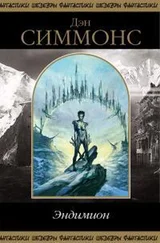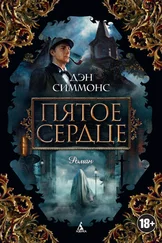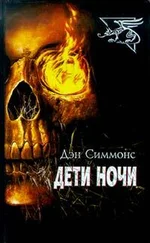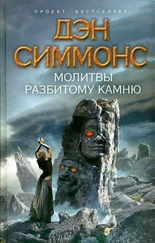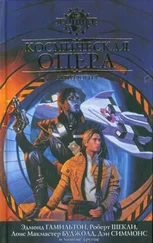He has no idea what time it is. The sun has been set for many hours, and they have not slept yet.
The ice breaks under pressure with the steady beat of drums. New leads are opening nearby.
The aurora casts curtains of light from the starry zenith to the whiteice horizon, sending shimmers to the north, to the east, to the south, and to the west. All things, including the white man and brown woman, are tinted alternately in crimson, violet, yellow, and blue.
He goes to his knees and raises his face.
She stands over him, bending slightly as if watching a breathing hole for a seal.
As taught, he keeps his arms at his side, but she grips him firmly by his upper arms. Her hands are bare in the cold.
She lowers her head and opens her mouth wide. He opens his. Their lips are almost touching.
She inhales deeply, seals her mouth over his, and begins blowing into his open mouth, down his throat.
This is where — in their practice during the long winter darkness — he had so much trouble. Breathing in another person’s breath is like drowning.
His body tense, he concentrates fiercely on not gagging, on not pulling away. He thinks — surrender .
Kattajjaq . Pirkusirtuk . Nipaquhiit . All clack-clack names he half remembers from his dreams. All names the Real People around the world’s circle of northern ice have for what they are doing now.
She begins with a short rhythmic series of notes.
She is playing his vocal cords like a bank of woodwinds’ reeds.
The low notes rise out over the ice and blend with the pressure-cracking and the pulsing aurora light.
She repeats the rhythmic motif but this time leaves a short gap of silence between the notes.
He takes her breath from his lungs, adds his own, and blows back into her open mouth.
She has no tongue, but her vocal cords are intact. The notes they produce with his breath fluttering them are high and pure.
She blows music from his throat. He brings music from hers. The opening rhythmic motif quickens, overlaps, hurries itself. The range of notes becomes more complex — as much flute as oboe, as distinctly human as any voice, the throat-song can be heard for miles across the aurora-painted ice.
Every three minutes or so in the first half hour, they pause and gasp for breath. Many times in practice they have broken up in laughter here — he understands through her string-signs that this was part of the fun when it was only a woman’s game, making the other throat-singer laugh — but there can be no laughter tonight.
The notes begin again.
The song takes on the quality of a single human voice singing, simultaneously bass-deep and flute-high. They can shape words by breathing through each other’s vocal cords like this and now she does — speaking words in song through the night; she plays his throat and vocal cords like a complex instrument and the words take shape.
They improvise. When one changes rhythm, the other must always follow. In that sense, he knows now, it is very much like making love.
He finds the secret space to breathe in between sounds so that they can go longer and make deeper, purer notes. The rhythm quickens toward an almost climactic point, then slows, then quickens again. It is follow the leader, back and forth, one changing the tempo and rhythm, the other following like a lover responding, then the other taking the lead. They throat-sing each other this way for an hour, then two hours, sometimes going twenty minutes and more without stopping for a breath.
The muscles of his diaphragm hurt. His throat is on fire. The notes and rhythm now are as complicated as those created by any dozen instruments, as interlaced, complex, and ascending as the crescendo of a sonata or symphony.
He lets her lead. The single voice the two of them make, the sounds and words the two of them speak, are hers, through him. He surrenders.
Eventually she stops and falls to her knees next to him. They are both too exhausted to hold their heads up. They pant and wheeze like dogs after a six-mile run.
The ice has stopped its noises. The wind has ceased its hum. The aurora pulses more slowly overhead.
She touches his face, gets to her feet, and goes away from him, pulling the tent flap shut behind her.
He finds enough strength to stand and to shed the rest of his clothes. Naked, he does not feel the cold.
A lead has opened to within thirty feet of where they made their music, and now he walks toward this. His heart will not slow its pounding.
Six feet from the edge of the water he goes to both knees again and raises his face to the sky and closes his eyes.
He hears the thing rising from the water not five feet from him and hears the scraping of its claws on ice and the huff of its breath as it pulls itself out of the sea onto the ice and hears the ice groaning under its weight, but he does not lower his head nor open his eyes to look. Not yet.
Water from its coming out of the sea laps against his bare knees and threatens to freeze him to the ice he kneels on. He does not move.
He smells the wet fur, the wet flesh, the bottom-of-the- ocean stink of it, and senses its aurora shadow falling over him, but he does not open his eyes to look. Not yet.
Only when his skin prickles and goose bumps rise at the heavy-mass presence seeming to surround him and only when its meat-eater’s breath envelops him does he open his eyes.
Fur dripping like a priest’s wet and clinging white vestments. Burn scars raw amid the white. Teeth. Black eyes not three feet from his own and looking deep into him, predator’s eyes searching for his soul… searching to see if he has a soul. The massive triangular head bobs lower and blots out the throbbing sky.
Surrendering only to the human being he wants to be with and to the human being he wants to become — never to the Tuunbaq or to the universe that would extinguish the blue flame in his chest — he closes his eyes again, tilts back his head, opens his mouth, and extends his tongue exactly as Memo Moira taught him to do for Holy Communion.
Lat. 68° 30′ N., Long. 99° W.
28 May, 1851
In the spring of the year that their second child was born, a girl, they were visiting Silna’s family in the God-Walking People’s band headed by the old shaman Asiajuk when word came from a visiting hunter named Inupijuk that a band of the Real People far to the south had received aituserk , gifts, of wood, metal, and other precious objects from dead kabloona — white men.
Taliriktug signed to Asiajuk, who translated the signs into questions for Inupijuk. It sounded as if the treasure might be knives, forks, and other artifacts from Erebu s’s and Terror ’s ship’s boats.
Asiajuk whispered to Taliriktug and Silna that Inupijuk was a qavac — literally, “a man from the south,” but also a term in Inuktitut that denoted stupidity. Taliriktug nodded his understanding but continued to sign questions that the sour shaman passed on to the stupidly grinning hunter. Part of Inupijuk’s social discomfort, Taliriktug knew, was that the hunter from the south had never been in the presence of sixam ieua spirit-governors before and was not quite sure if Taliriktug and Silna were human beings or not.
It sounded as if the artifacts were real. Taliriktug and his wife went back to their guests’ iglu , where she nursed the baby and he thought about it. When he looked up, she was using string to sign.
We should go south , said the strings between her fingers. If you want to .
He nodded.
In the end, Inupijuk agreed to guide them to the southeastern village and Asiajuk decided to come with them — very unusual, since the old shaman rarely traveled far these days. Asiajuk brought his best wife, Seagull — young Nauja of the amooq big tits — who also carried her scars from the band’s lethal encounter with the kabloona three years earlier. She and the shaman were the only survivors of that massacre, but the girl showed no resentment toward Taliriktug. She was curious about the fates of the final kabloona whom everyone knew had headed south across the ice three summers ago.
Читать дальше


